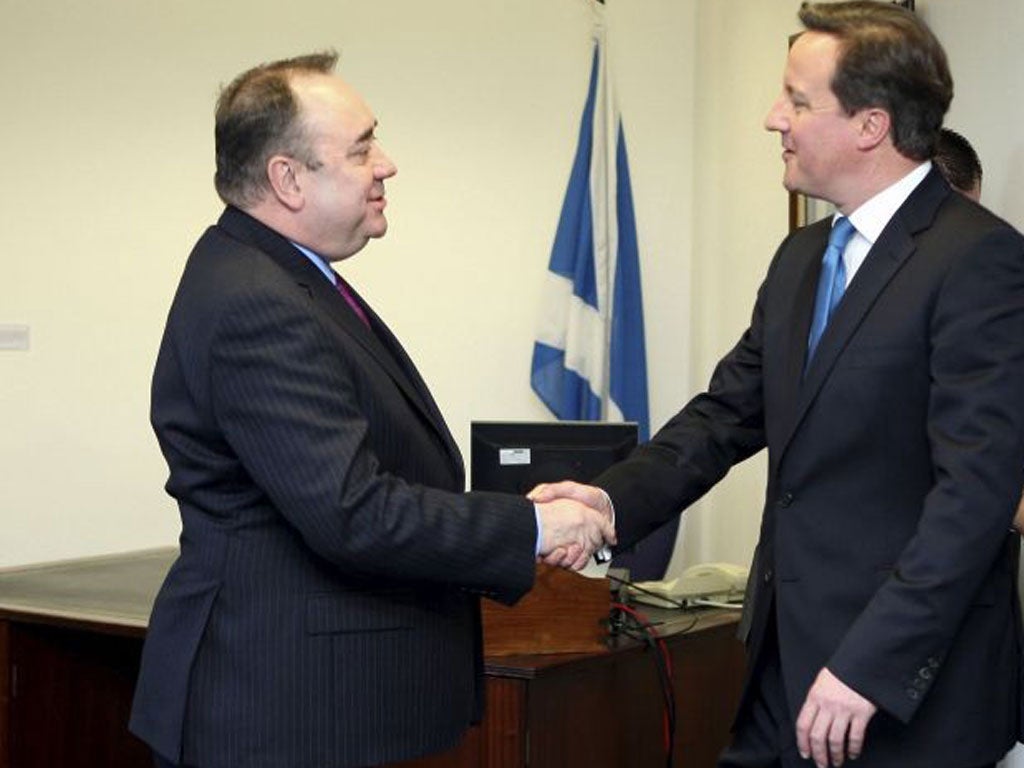If Scots vote for independence, next year’s UK election should go ahead
It would be undemocratic to delay the election just because Scottish MPs wouldn’t be in the Commons long


If Scotland votes for independence next week, the UK general election should go ahead as planned next year. Anonymous ministers have been quoted in the newspapers since the panic over opinion polls suggesting the Yes vote is gaining ground.
One said: “You simply could not have an election that would produce a Labour government supported by Scottish MPs if the Tories had a majority in the rest of the UK.” He or she (I assume it is the same one) said: “Labour could win a majority in 2015 but it would be running a zombie government which everyone knows would lose that majority less than a year later.”
This is nonsense. The general election is already happening a year later than it should have been. It was a stroke of George Osborne’s genius – or, rather, his pen – during the coalition negotiations with the Liberal Democrats that changed a four-year fixed-term parliament to a five-year one. But now that we have the awful Fixed-Term Parliaments Act we have to stick to it, until it is repealed by a future House of Commons when MPs have come to their senses.
People say that it would be wrong, if Scotland has voted to secede, for it to elect MPs next May. How could they, representing a soon-to-be foreign country, vote on questions affecting their soon-to-be foreign neighbours? The anonymous minister suggests that the UK general election should be postponed until March 2016, which is Alex Salmond’s target date for the formal separation to take place.
But that date is just a Nationalist aspiration. The negotiations between Scotland and the rest of the UK, and between Scotland and the EU, would be complicated and could easily take much longer than that.
Part of the reason it will take a long time is David Cameron’s refusal to allow civil servants to plan for the possibility of independence. The unwritten guardian of the British constitution, Professor the Lord Hennessy, referred in the House of Lords on 30 January to “what I regard as the regrettable decision taken by the Cabinet at the turn of 2012-13 that Whitehall shall not engage in any contingency planning for Scottish separation”.
I disagree with him. It would have been undemocratic for impartial civil servants to have pre-empted the decision of the Scottish people. Once that decision is made, if it is for independence, that is the time for the negotiations and the planning to start.
Those negotiations should take as long as they need. It may be hard to reach agreement on questions such as the currency and the division of the national debt. It may even harder to sort out the politics of the EU, which will require unanimous support of all 28 existing members, including Spain, which does not want to encourage Catalonian separatism.
So MPs elected next year could be in the Commons for longer than the 10 months to the SNP target date.
However, even if some of the MPs elected next May would be there for only 10 months, why would that be a reason to cancel democracy? For as long as the UK exists in its present form, the rules of democracy have to be observed. That means Scottish MPs are members of the UK Parliament until the moment that they are not.

Join our commenting forum
Join thought-provoking conversations, follow other Independent readers and see their replies